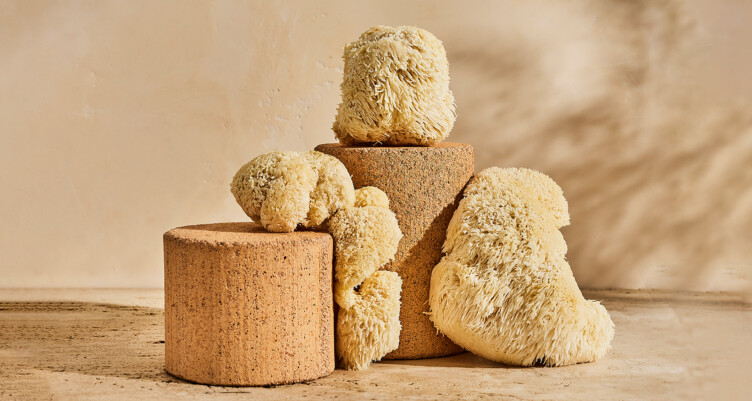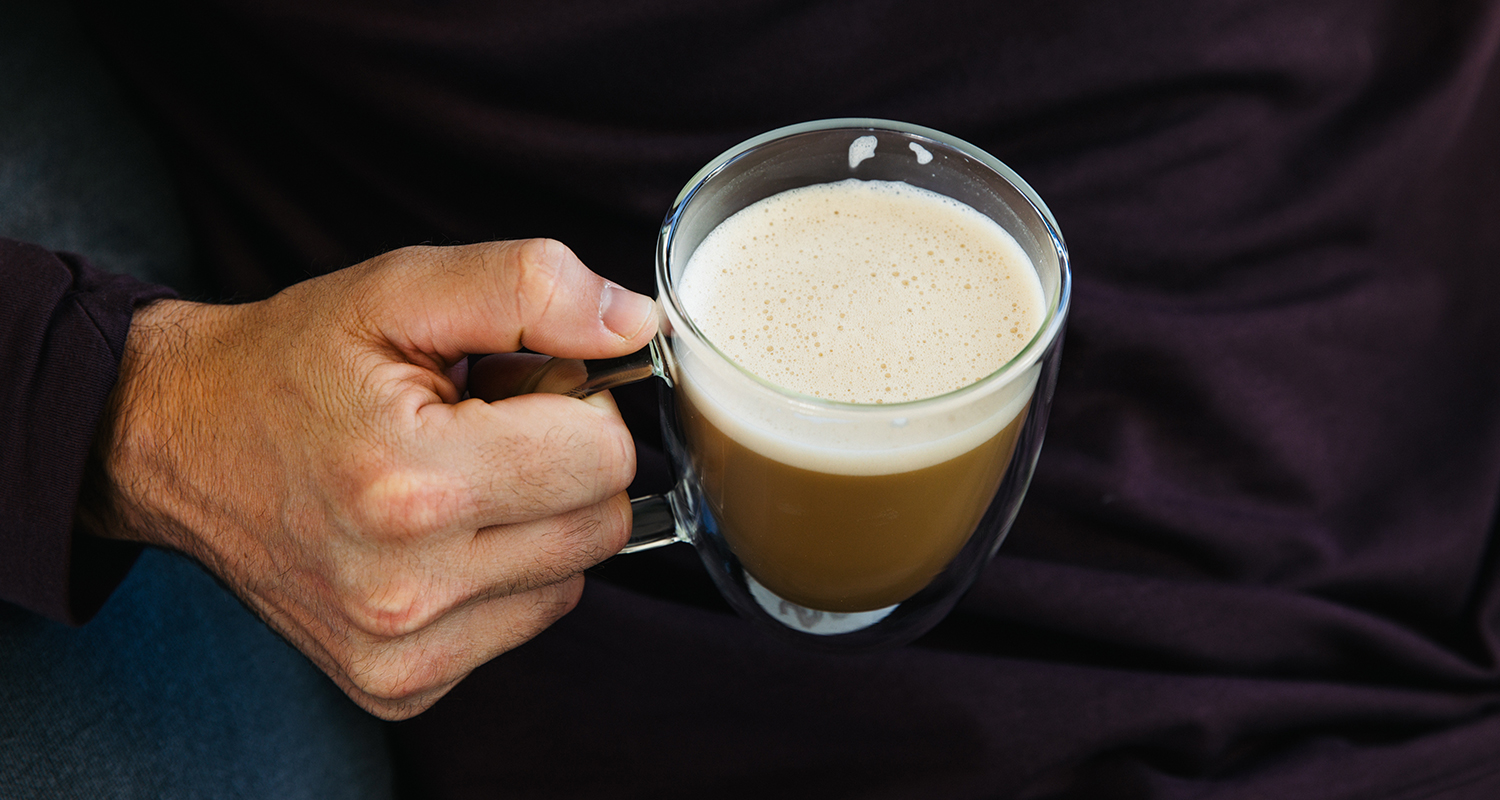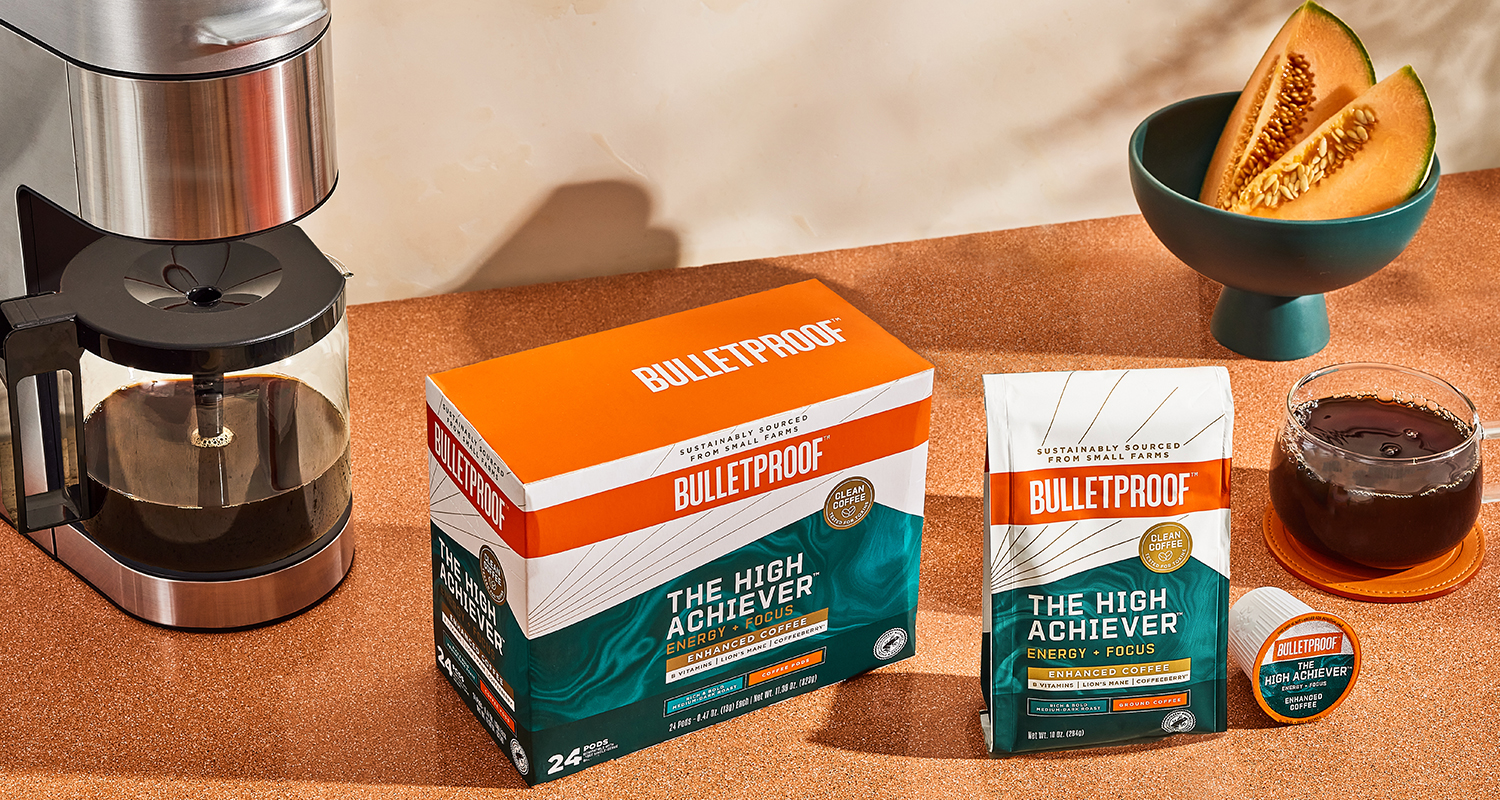Is Mushroom Coffee Good for You? Uncover the Surprising Health Benefits

- Mushroom coffee is a blend of ground medicinal mushrooms and coffee. Some consider it a healthier alternative to regular coffee with a similar taste.
- Mushroom coffee has historical roots dating back to World War II in Finland, where mushrooms were used as a coffee substitute during rationing.
- Mushroom coffee is often marketed as a healthier alternative to regular coffee but its long-term effects need more research.
Mushroom coffee is a popular caffeine beverage that’s sprouting up everywhere. This mixture of blended medicinal mushrooms and coffee beans is a healthy alternative to your standard cup of Joe. It may provide several health benefits, such as improving energy and focus, strengthening the immune system and helping with stress.[1][2]
Is mushroom coffee good for you? Here’s everything you need to know.
Introduction to Mushroom Coffee
Mushroom coffee is a blend of coffee and mushrooms. In a multi-step process, medicinal mushrooms are dehydrated and ground into a fine powder mixed with coffee.
Mushroom coffee has an intriguing history. Its origins are traced to Finland during World War II, when coffee beans were rationed, leading people to use mushrooms as a substitute. Today, a trendy mushroom coffee combines regular coffee with the benefits of medicinal mushrooms, which have been used for centuries in traditional Chinese medicine to promote health and vitality. Incorporating medicinal mushrooms into coffee offers a unique flavor. It also enhances the drink’s health benefits, making it a popular choice for those seeking a healthier alternative to regular coffee.
The most common medicinal mushrooms that make up this fungi-coffee infusion include:
- Lion’s mane
- Reishi
- Chaga
- Turkey tail
- Cordyceps
Health Benefits of Mushroom Coffee

Mushroom avoiders may not want to admit it, but the answer to “Is mushroom coffee really good for you?” is a resounding yes. Chinese traditional medicine often calls for medicinal mushrooms because certain kinds are adaptogens that help the body’s ability to deal with stress.[3]
Additional benefits of medicinal mushrooms (and mushrooms in general) make this coffee worth the taste:
- Immune support: Research on mushroom coffee and the immune system is limited. However, we do have a wealth of knowledge on how mushrooms’ antioxidant power may help strengthen the efficiency of the immune system.[4]
- Health and side effect support: The impact mushrooms can have on the immune system can’t be understated. A 2021 article found that by strengthening the immune system, mushrooms may play a role in preventing the development of tumors and may support the treatment of cancer.[5] They may also help minimize the side effects of cancer therapies, such as nausea, diarrhea and insomnia.[6]
- Focus and energy: Lion’s mane has a mighty roar when it comes to energy and focus. A 2023 study enlisted 41 healthy adults between 18 and 45 for their story. Researchers studied the effects of taking 1.8 grams of a lion’s mane supplement for 28 days. At the end of the study, participants showed improvements in their speed in completing a task, as well as their memory and focus.[7]
What is the Downside of Mushroom Coffee?

If you plan to switch to mushroom coffee, it helps to know the potential drawbacks or concerns. For starters, more evidence-based research studies are needed to verify the long list of health benefit claims.
Then there’s the cost. You may believe in the power of mushrooms, but that may not be enough to justify the cost of mushroom coffee. It is significantly more expensive than coffee and coffee alternatives, including matcha, tea and Yerba mate. Some popular high-quality mushroom coffees can cost double what you pay for a bag of regular coffee.
If over-consumed, mushroom coffee can cause many of the same side effects as over-consuming caffeine in coffee.
High caffeine side effects include:[8]
- Headaches
- Anxiety
- Restlessness
- Irritability
- Dizziness
- Shakiness
- Rapid heartbeat
- Digestive issues
Who should avoid mushroom coffee?
If you have kidney issues, trying mushroom coffee is not advised. Mushrooms are high in oxalates, which can stick to calcium and form kidney stones and crystals.[9][10]
Certain mushrooms contain high amounts of oxalates, such as chaga mushrooms.[11]
The FDA has cited that healthy adults can consume 400 milligrams of caffeine per day.[12] That’s about four or five cups. To consume mushroom coffee safely, don’t exceed three cups per day.
Mushroom Coffee vs Regular Coffee

These days, mushroom coffee has become all the rage. It has been touted as a healthier alternative to regular coffee.
Mushroom coffee provides many of the benefits of regular coffee: better energy and cognitive performance, stress support, and better memory and focus, to name a few. It comes in various forms, such as instant coffee, ground coffee and coffee pods.
If you don’t like the taste or texture of mushrooms, you’re in luck. Mushroom coffee tastes just like a regular cup of Joe. Some brews may have a slightly nutty or earthy taste.
Regular coffee does out-brew mushroom coffee in many ways. For instance, there is significantly more research on coffee. Research has helped us understand the effects of caffeine, as well as any drug interactions. Coffee is also a dietary staple worldwide, while many people have yet to try mushroom coffee. In the United States alone, seventy-five percent of Americans over 20 years old drink coffee daily.[13]
Mushroom coffee offers a distinctive and healthful twist on traditional coffee, combining rich coffee flavors with the wellness benefits of medicinal mushrooms. From its origins in Finland during World War II to its modern popularity, mushroom coffee provides enhanced energy, focus and immune support. Despite any potential downsides, its benefits make it a worthwhile option. Available in various forms, mushroom coffee can be a delicious and nutritious addition to your daily routine.
Mushroom Coffee Alternatives: How Enhanced Coffee Can Deliver Similar Benefits
Though it doesn’t include the blend of medicinal mushrooms typically found in mushroom coffee, The High Achiever™ provides sustained energy support throughout the day, without the usual afternoon slump.
While this blog highlights the benefits of mushroom coffee, it’s important to note that The High Achiever is not a mushroom coffee. Instead, it’s an enhanced medium-dark roast that contains functional ingredients like lion’s mane, coffeeberry, and B vitamins. Unlike regular coffee, these functional ingredients deliver energy and focus support that won’t fizzle by mid-afternoon.
There are many ways to prepare The High Achiever to suit your preferences for coffee. These include a drip coffee pot, a French press or a Keurig.
Is drip coffee your favorite? Here are the steps to follow:
- Step 1: Add water to the reservoir. This should correspond to the number of coffee cups you’re brewing.
- Step 2: Place a fresh filter into the basket and pour your desired amount of The High Achiever coffee grounds. The regular serving size of the High Achiever is 2.5 tablespoons.
- Step 3: Press the brew button on the coffee machine (the actual button varies for each machine). The coffee is ready to enjoy when it’s no longer dripping.

If you choose The High Achiever, you’ve completed step one of making mushroom coffee taste fantastic. Follow these additional tips to help mushroom coffee outrank your everyday brew.
- Add MCT oil (like Brain Octane C8 MCT Oil) to your mushroom coffee for extra fuel for the body and mind.
- For the freshest taste, always use filtered water.
- Experiment with sweeteners to enhance the earthy taste of mushrooms. These include maple syrup, honey, brown sugar and spices (such as cinnamon, nutmeg or pumpkin spice).
If you’re looking to enhance the benefits of your morning beverage, adding MCT oil or experimenting with sweeteners and spices—can help elevate both The High Achiever and mushroom coffee.
Sign up for early access to sales, product launches, the latest Bulletproof news and more!







